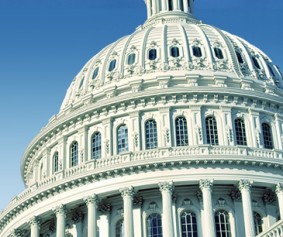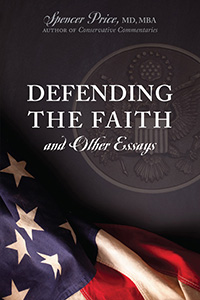Conservatism And The American Un-Revolution
Monday, July 4th, 2016 @ 12:00PM
The most important thing to keep in mind when thinking about the American Revolution is that it wasn’t a revolution. The second most important thing to keep in mind when thinking about the American Revolution is that liberals don’t want you to know it wasn’t a revolution.
Contrary to what American children are taught in elementary school and contrary to the very name of the conflict itself, the American Revolution was, in fact, the exact opposite of a revolution. That’s because true wars of revolution are fought in the name of change whereas the American Revolution was fought in the name of keeping things the same.
Wars of revolution differ from wars of conquest in that the objective of the former is a change in, or overthrow of, the current governing regime whereas the objective of the latter is the acquisition and control of new territories or resources or peoples. The American Revolution was neither.
Prior to the Revolutionary War, American colonists considered themselves British subjects. As such, they enjoyed the same rights long afforded Englishmen – rights such as habeas corpus, trial by jury, and representation in the legislature (i.e., Parliament). After 1763, however, things began to change as the British government imposed numerous taxes upon the colonists to pay for the French and Indian War. Because the colonies were not directly represented in Parliament, many colonists rejected these taxes. As a result of British efforts to force collections, many colonists were stripped of their rights. Restoration of these rights was the initial impetus for the war. Independence from Britain did not become an objective until after King George III refused to negotiate with the colonists.
Typically, true revolutions follow a three-step course: first – overthrow of the governing regime by armed revolutionaries; second – declaration of martial law; third – rise of a dictator who refuses to relinquish power or institute democratic reforms. Recent history is replete with such examples: the French Revolution and Napoleon; the Bolshevik Revolution and Lenin and Stalin; the Chinese Communist Revolution and Mao Zedong; the Cuban Revolution and Fidel Castro, to name a few.
The American Revolution, however, was none of these things: there was no overthrow of a governing regime; there was no declaration of martial law in any of the colonies; there was no rise of a dictator. On the contrary, the British monarchy and Parliament remained intact though no longer in control of the colonies; the colonies governed themselves through democratic systems; the chief executive was selected through democratic processes.
The liberal revisionist version of the American Revolution casts America’s Founding Fathers as young liberals anxious to wage war in the name of change. In actuality, this could hardly be further from the truth. America’s Founding Fathers were, in fact, the definition of conservative. Rather than change, they sought restoration of the traditional rights long held by Englishmen. As landowners, planters, merchants, and professionals, these men preferred stability to upheaval. Rather than war, they fervently sought negotiation initially. War, they believed, should be a last resort and was pursued only when repeated efforts at negotiation failed. After all, the Founding Fathers knew the stakes – in the words of Benjamin Franklin, “We must, indeed, all hang together or, most assuredly, we shall all hang separately.”
Further proof of the Founding Father’s conservative inclinations was the fact that the government they created was based, in large part, on the British parliamentary system (with a bicameral legislature consisting of a House of Representatives and Senate similar to the British House of Commons and House of Lords). In addition, the American Bill of Rights of 1789 was based largely upon the English Bill of Rights of 1689.
Since our nation’s founding, American conservatism has been responsible for many supreme moments…none finer than during the American Un-Revolution.
Posted by Spencer Price
Categories: Latest Columns




